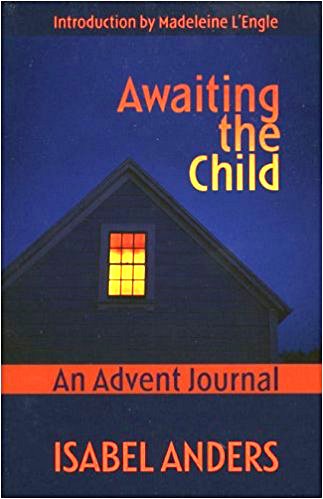Guest Writer Isabel Anders
Anders: Advent, Awaiting the Child
“Isabel Anders wrote these Advent meditations while waiting for her first baby to be born. I read them in my husband’s hospital room, watching him die. Now another Advent approaches, another time when birth and death draw close together and it is not always possible to tell which is which.
As we move into Advent we are called to listen, something we seldom take time to do in this frenetic world of over-activity. But waiting for birth, waiting for death—these are listening times, when the normal distractions of life have lost their power to take us away from God’s call to center in Christ.” —Madeleine L’Engle.
John the Baptist represents the call to radical preparation of one’s whole life for the coming of the kingdom. His is an extreme message, and his own story ends in an early death. Yet while he lived, he praised the Lord with his whole being, his habits, his reputation, his life—for all it was worth. He brought the messages of the Old Testament prophets, especially that of Isaiah, into focus, and validated the hope expressed so long ago. A way, a path to God, would be prepared. A voice cries, “In the wilderness prepare the way of the Lord, make straight in the desert a pathway for our God” (Is. 40: 3).
The call to repentance must always precede praise. Acknowledging sin clears the way for the truth of God’s deliverance, for the Messiah to come into his own. And praise naturally follows the revelation of truth. John was the last forerunner of the Lord, a close earthly relation of Jesus. As a baby he had leaped in his mother Elizabeth’s womb at the announcement that Christ would be born into the world, a foreshadowing of his prophetic mission to praise and acknowledge Messiah with his whole being.
The connection between repentance and praise that the Baptist exemplifies is a fitting one in Advent, helping us to hold the tension between joy-in-waiting and joy-set-loose. …
In Advent we talk of preparing, of waiting, and therefore it would be almost impossible to avoid mentioning what it is we are waiting for, and why. Yet our emphasis on repentance, intermingled with praise, can sometimes give our songs a minor key. In these days we need to consider our own condition, and dare to think, “What if he had not come?” Our redemption hangs in the balance, and “all lies in a passion of patience” as we wait.
We pray that he will come to our hearts, as he did in the lives of those faithful believers: Mary, John, Anna, Simeon, Elizabeth. Acknowledgment of our own unworthiness, yet acceptance of the gift—two distinct actions—are as inseparable in us as they were in those saints. Our belief, like their hope, is part of the ongoing story of redemption. We are brought into line with the whole event through repentance and praise. —From Awaiting the Child: An Advent Journal by Isabel Anders (Cowley: 1987, 2005).
Isabel Anders


